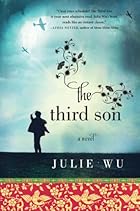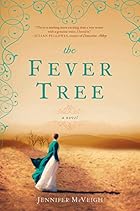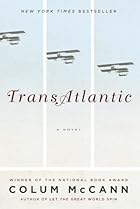 For the May State of the Thing newsletter, I had the chance to interview Julie Wu about her debut novel The Third Son (Algonquin Books). Julie studied literature at Harvard and medicine at Columbia, and received a 2012 fellowship from the Massachusetts Cultural Council. She lives near Boston.
For the May State of the Thing newsletter, I had the chance to interview Julie Wu about her debut novel The Third Son (Algonquin Books). Julie studied literature at Harvard and medicine at Columbia, and received a 2012 fellowship from the Massachusetts Cultural Council. She lives near Boston.
Can you tell us about the origins of The Third Son? Do you recall which part of the story came to you first?
My first inkling of the main character was in 1989. I was sitting in my parents’ suburban Boston kitchen and suddenly had the image of a little boy on the floor of his parents’ house in Taiwan. It was the first time I’d ever visualized a scene so vividly. I rushed to my typewriter to record the musty smell, the dark floorboards, and the boy’s sadness. Thinking back on it now, I believe that boy was Saburo.
How did the story change during the research and writing process?
In 1989 I tried to make that boy the protagonist of a different book entirely—one set in contemporary suburban America in a Taiwanese-American household. That book stalled when I asked my parents questions for background information and I realized how boring my book was in comparison with their actual lives. I was resistant, though, to the idea of basing a book on my parents’ story.
It was 2002 when I finally sat down to interview my parents in earnest. I was pregnant with my first child and maybe had gained some perspective, as well as an understanding that my opportunities to find out my parents’ stories were finite. My first draft was very much based on their lives, but over the following years I learned that in order to make the story a universally appealing, cohesive, suspenseful, and satisfying work, I would have to feel absolutely free to take liberties with the story, the plot, the characters, etc. Now the book is its own self-contained story. Of course, despite that I made every effort to make sure the book is historically accurate.
The early sections of the book are set in Taiwan during a particularly tumultuous period in its history (which I’d venture to guess many of your American readers probably won’t be familiar with). Can you recommend some further reading on the history of Taiwan that interested readers might turn to?
There’s a classic work by George Kerr called Formosa Betrayed. George Kerr was an American diplomat at the time of the February 28 massacres in 1947, and his account of the events on Taiwan and his colleagues’ efforts to get the American government to intervene are both devastating and eye-opening.
Another interesting account is Peng Ming-Min’s autobiography, A Taste of Freedom: Memoirs of a Formosan Independence Leader, in which he describes his arrest for trying to distribute a manifesto for Taiwanese independence. Peng conceals the details of his dramatic escape to Sweden to protect his friends, but more recently, in the book Fireproof Moth, American missionary Milo Thornberry describes exactly how he and others helped mastermind Peng’s escape. There are museums in Taiwan that document the events of 1947 and the subsequent White Terror. These include the Taipei 228 Museum, the National 228 Museum, Jing-Mei Human Rights Memorial Park (a former military court prison) in Taipei, as well as the Green Island Human Rights Memorial Park on Green Island, on the site of the offshore prison where long-term political prisoners were held. The website associated with the Green Island museum is maintained by its designer, Ronald Tsao, and is quite extensive and informative: http://2011greenislanden.wordpress.com.
 When and where do you do most of your writing?
When and where do you do most of your writing?
I write mostly in my dining room and in the public library. I probably get the most done in the library, because there I’m not distracted by the pantry and the refrigerator, and I’m too embarrassed to sit around just doing Facebook.
Any particular writing tips you’d like to share?
Don’t worry about getting stuff out fast. Make your work the best it can be. Agents and editors are just people like everyone else. If tons of them don’t connect to your work, that means tons of other readers won’t either. If that matters to you, figure out why and fix it.
What’s your library like? What sorts of books would we find on your shelves?
My library is a jumble of all kinds of books—high-falutin’ French literature from college that I can’t understand anymore, Taiwanese history books, parenting books and travel guides, medical textbooks, and, of course stacks, and stacks of wonderful novels of all genres, famous and not-so-famous, many of them authored by friends.
For more about Julie’s next project, some of her favorite libraries, and more, read the rest of our interview.
If you’d like to receive our State of the Thing newsletter, you can add it in your email preferences. You also have to have an email address listed.


 Some excerpts from my interview with
Some excerpts from my interview with 





